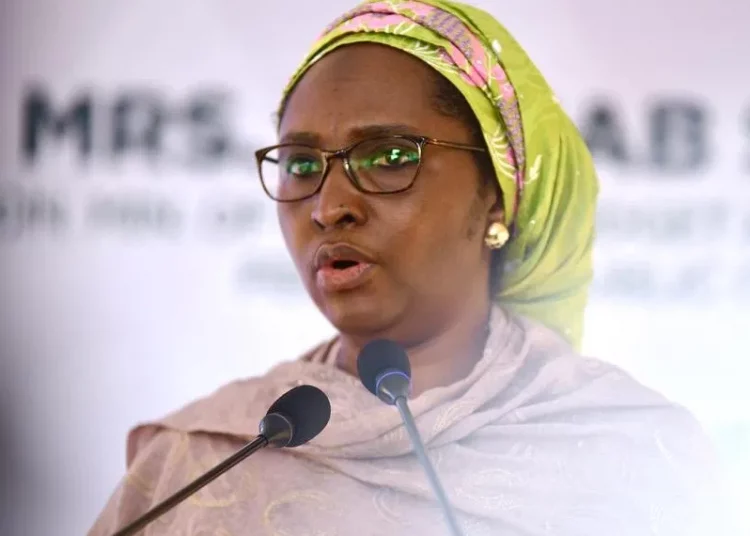The federal government has proposed the sum of N6.72 trillion to settle subsidy on Premium Motor Spirit (PMS), otherwise known as petrol, for the year 2023.
This is contained in figures on performance of the 2022 budget between January and April 2022 released yesterday.
The figures that were released by the minister of Finance, Budget and National Planning, Hajiya Zainab Ahmed, showed that the government recorded N3.09 trillion budget deficit within the same four months alone.
The budget performance figures showed that the actual spending as of April 31 was N4.72 trillion.
Of that amount, N1.94 trillion was for debt service, and N1.26 trillion for personnel cost, including pensions. As at April, N773.63 billion had been spent on capital expenditure.
On the flip side, as of April 2022, federal government’s retained revenue was only N1.63 trillion, 49 per cent of the prorata target of N3.32 trillion.
By that, the difference between actual revenue and actual expenditure is N3.09trillion, a deficit the government has had to finance with borrowing.
The federal government’s share of oil revenues was N285.38 billion, representing 39 per cent performance, while non-oil tax revenues totalled N632.56 billion, a performance of 84 per cent.
Company income tax and Value Added Tax (VAT) collections were N298.83 billion and N102.97 billion, representing 99 per cent and 98 per cent of their respective targets.
Customs collections, made up of import duties, excise and fees, as well as federation account special levies, trailed target by N76.77 billion (25.42 per cent).
Other revenues amounted to N664.64 billion, of which independent revenue was N394.09 billion.
Presenting the medium-term outlook for 2023-2025 period, the government’s real GDP growth is projected at 3.75 per cent in 2023, from a revised projection of 3.55 per cent for 2022.
Growth is expected to moderate to 3.30 per cent in 2024 before picking up to 3.46 per cent in 2025.
The inflation rate is projected to average 17.16 per cent in 2023, up from the revised average of 16.11 per cent for 2022.
Upward pressure on prices is expected to be driven by the current and lag effect of the global price surge due to the Russian-Ukraine war, domestic insecurity, rising costs of imports, exchange rate depreciation, as well as other supply-side constraints.
The federal government projected fiscal outcomes in the medium-term framework under two scenarios based on the underlying budget parameters/assumptions.
Under scenario 1, which is described as the business-as-usual scenario, the forecast is that if the subsidy on PMS remains, it will cost the federal government N6.72 trillion for full year 2023 to settle subsidy claims.
On the other hand, the expectation is that if petrol subsidy will remain up to mid-2023 based on the 18-month extension announced for full implementation of Petroleum Industry Act by President Muhammadu Buhari early 2021, only N3.36 trillion will be needed as subsidy payment.
“Additionally, there will be tighter enforcement of the performance management framework for GOEs that will significantly increase operating surplus/dividend remittances in 2023,” the minister of finance said yesterday at an event that was held in Abuja.
Reps To Probe 2017-2021 Fuel Subsidy Regime
Ironically, in 2023 federal government revenue is projected at N6.34 trillion, out of which only N373.17 billion or 5.9 per cent is expected to come from oil-related sources. The balance of N5.97 trillion is to be earned from non-oil sources.
However, if the subsidy regime is ended at the middle of next year, the projection is to have an aggressive implementation of cost-to-income limits of government owned enterprises (GOEs).
With these, the 2023 revenue is projected at N8.46 trillion (15.1 per cent or N1.51 trillion less than the 2022 Budget) but N2.12 trillion more than scenario 1.
Out of that, N1.99 trillion or 23.6 per cent is projected to come from oil-related sources, while the balance is to be earned from non-oil sources.





